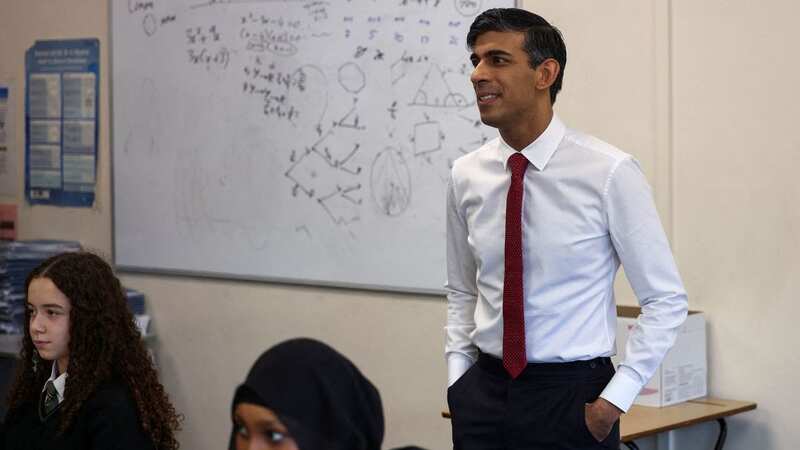Rishi Sunak says being bad at maths is ruining economy as lessons compulsory

Rishi Sunak will demand the country end its “anti-maths mindset” as he vows to push ahead with plans to make all children study the subject until they are 18.
The PM will criticise the fact that it is “socially acceptable’ to be bad at maths as he argues better numeracy is vital to growing the economy.
In a speech in London, he will say that he still wants to make maths lessons compulsory up to the age of 18.
But in a concession he will say that not everybody will have to study the subject at A-Level, with alternative courses available.
Critics have warned that Mr Sunak’s plan will be challenging to implement in the face of a nationwide shortage of maths teachers.
 Teachers, civil servants and train drivers walk out in biggest strike in decade
Teachers, civil servants and train drivers walk out in biggest strike in decade
In his speech today, the PM will say: “We’ve got to change this anti-maths mindset. We’ve got to start prizing numeracy for what it is – a key skill every bit as essential as reading.
 Teaching experts will look at whether a new maths qualification should be introduced for 16 to 18-year-olds (Getty Images/iStockphoto)
Teaching experts will look at whether a new maths qualification should be introduced for 16 to 18-year-olds (Getty Images/iStockphoto)“I won’t sit back and allow this cultural sense that it’s ok to be bad at maths to put our children at a disadvantage…
“My campaign to transform our national approach to maths is not some nice to have. It’s about changing how we value maths in this country”.
Arguing that being better at maths is crucial if Britain is going to “compete with the best in the world”, he will say: “If we are going to grow the economy not just over the next two years, but the next twenty, we simply cannot allow poor numeracy to cost our economy tens of billions a year or to leave people twice as likely to be unemployed as those with competent numeracy.
Do you think pupils should have to study maths until age 18? Vote in our poll HERE to have your say.
“We have to fundamentally change our education system so it gives our young people the knowledge and skills they need - and that our businesses need.”
A new advisory group will be established to examine whether a new maths qualification is required for 16 to 18 year olds.
Mr Sunak will say: “We will not deliver this change overnight. We’ll need to recruit and train the maths teachers. We’ll need to work out how to harness technology to support them.
 Labour's Bridget Phillipson warned that the maths promise would be impossible to deliver without more teachers (Getty Images)
Labour's Bridget Phillipson warned that the maths promise would be impossible to deliver without more teachers (Getty Images)“And we’ll need to make sure this maths is additional to other subjects – not instead of them. But we are taking the first step today by identifying the maths content that will give our 16-to-18 year olds the skills they need to get on in life.”
Shadow Education Secretary Bridget Phillipson said: "Once again, the Prime Minister needs to show his working. He cannot deliver this reheated, empty pledge without more maths teachers.
 8 money changes coming in February including Universal Credit and passport fees
8 money changes coming in February including Universal Credit and passport fees
"But after thirteen years of failing our children, the Tory government repeatedly misses their target for new maths teachers, with maths attainment gaps widening and existing teachers leaving in their droves.
“Labour does not need a new advisory group to make the right choices for our children. We will drive up standards in every corner of our country by investing in thousands more teachers, including maths teachers, by ending tax breaks for private schools.”
* Follow Mirror Politics on Snapchat, Tiktok, Twitter and Facebook.
Read more similar news:
Comments:
comments powered by Disqus

































